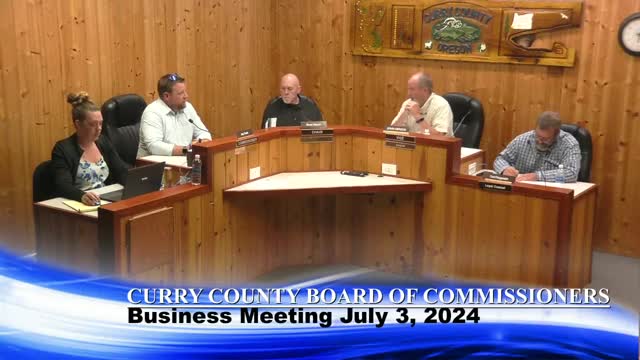Energy Agenda Sparks Controversy Over Ocean Control
July 04, 2024 | Curry County, Oregon

This article was created by AI summarizing key points discussed. AI makes mistakes, so for full details and context, please refer to the video of the full meeting. Please report any errors so we can fix them. Report an error »

In a recent government meeting, concerns were raised regarding the current administration's energy agenda, particularly its focus on offshore wind energy development. Critics argue that the initiative is less about generating renewable energy and more about exerting control over ocean resources.
One speaker highlighted the financial implications for non-governmental organizations (NGOs) that depend on federal funding to advance these energy goals, suggesting that the push for leasing offshore areas is driven by inefficiency and a lack of transparency. The speaker expressed skepticism about the feasibility of the proposed energy projects, noting that the technology remains theoretical and has not yet been developed.
A significant point of contention was the potential long-term leasing of ocean areas for energy projects, which could restrict access to vital fishing and recreational grounds. The speaker warned that once these areas are leased—potentially for up to 50 years—reversing such decisions would be legally challenging, especially if the leases are secured before public awareness of their implications grows.
The urgency of the situation was underscored by claims that the administration aims to finalize these leases by the end of summer, a timeline that many believe does not allow for adequate public discourse or understanding of the consequences. The speaker compared the situation to a corrupt business model, suggesting that the government is pushing through projects that lack public support and viability.
Critics also pointed out the economic inefficiencies of wind energy, arguing that the costs associated with constructing and maintaining windmills often outweigh the energy they produce. This reliance on government subsidies for infrastructure was framed as a fundamental flaw in the current energy strategy, raising questions about the true motivations behind the push for offshore wind development.
Overall, the meeting highlighted a growing tension between energy policy, environmental concerns, and public access to ocean resources, with calls for more transparency and public engagement in the decision-making process.
One speaker highlighted the financial implications for non-governmental organizations (NGOs) that depend on federal funding to advance these energy goals, suggesting that the push for leasing offshore areas is driven by inefficiency and a lack of transparency. The speaker expressed skepticism about the feasibility of the proposed energy projects, noting that the technology remains theoretical and has not yet been developed.
A significant point of contention was the potential long-term leasing of ocean areas for energy projects, which could restrict access to vital fishing and recreational grounds. The speaker warned that once these areas are leased—potentially for up to 50 years—reversing such decisions would be legally challenging, especially if the leases are secured before public awareness of their implications grows.
The urgency of the situation was underscored by claims that the administration aims to finalize these leases by the end of summer, a timeline that many believe does not allow for adequate public discourse or understanding of the consequences. The speaker compared the situation to a corrupt business model, suggesting that the government is pushing through projects that lack public support and viability.
Critics also pointed out the economic inefficiencies of wind energy, arguing that the costs associated with constructing and maintaining windmills often outweigh the energy they produce. This reliance on government subsidies for infrastructure was framed as a fundamental flaw in the current energy strategy, raising questions about the true motivations behind the push for offshore wind development.
Overall, the meeting highlighted a growing tension between energy policy, environmental concerns, and public access to ocean resources, with calls for more transparency and public engagement in the decision-making process.
View full meeting
This article is based on a recent meeting—watch the full video and explore the complete transcript for deeper insights into the discussion.
View full meeting
